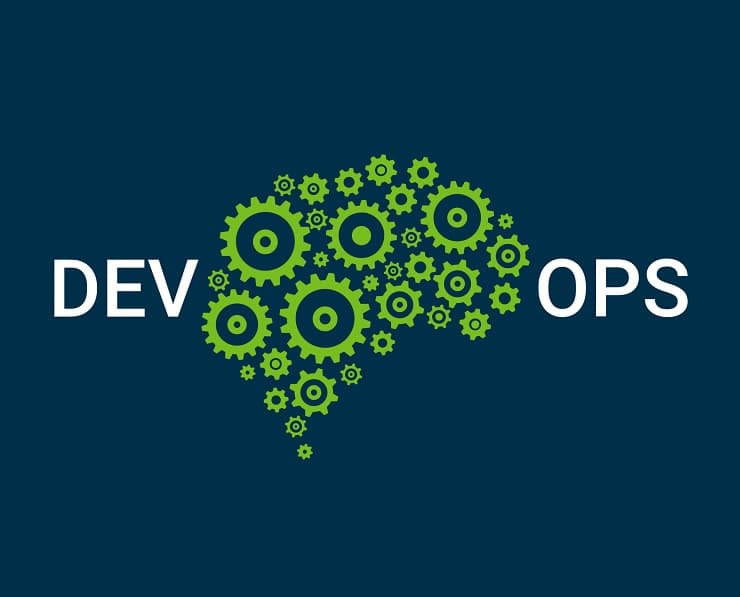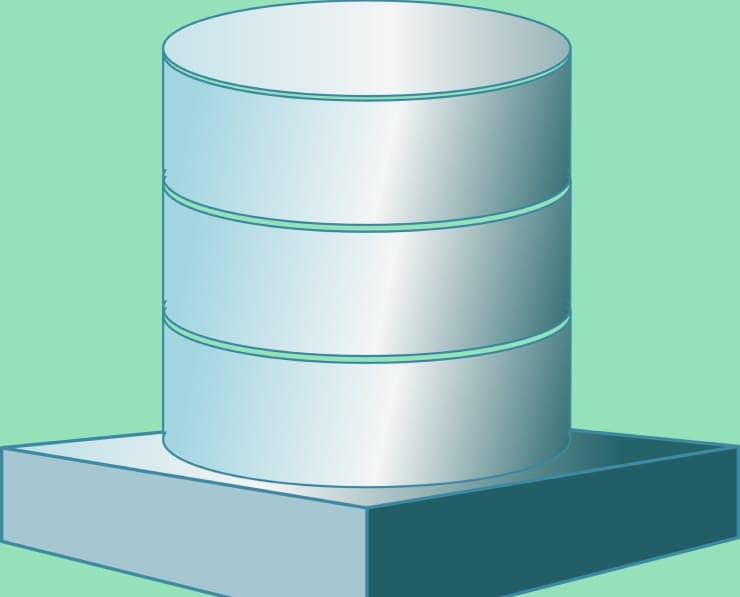Student Feedback
AWS DevOps Engineer Professional: AWS DevOps Engineer - Professional (DOP-C01) Certification Video Training Course Outline
SDLC Automation (Domain 1)
Configuration Management and Inf...
Monitoring and Logging (Domain 3)
SDLC Automation (Domain 1)
AWS DevOps Engineer Professional: AWS DevOps Engineer - Professional (DOP-C01) Certification Video Training Course Info
Master AWS DevOps Engineer Professional Certification: Complete Course
Complete Guide to Mastering the AWS Certified DevOps Engineer – Professional (DOP-C02) Certification.
What You Will Learn from This Course
• Be fully prepared for the AWS Certified DevOps Engineer – Professional (DOP-C02) certification exam
• Gain practical knowledge of DevOps principles and best practices in AWS environments
• Learn how to implement continuous integration and continuous delivery (CI/CD) pipelines on AWS
• Understand Infrastructure as Code (IaC) using AWS CloudFormation and Terraform
• Explore automation strategies for deploying, monitoring, and managing applications on AWS
• Gain hands-on experience with AWS services such as AWS CodePipeline, CodeBuild, CodeDeploy, CloudWatch, and CloudFormation
• Understand security best practices for DevOps operations in the cloud
• Learn how to design scalable, highly available, and fault-tolerant systems on AWS
• Develop skills to monitor, troubleshoot, and optimize AWS workloads effectively
• Prepare with practice exams and assessments to evaluate readiness for certification
Learning Objectives
By the end of this course, learners will be able to:
• Design, implement, and manage DevOps practices and automation workflows on AWS
• Build and deploy CI/CD pipelines for application delivery using AWS services
• Use Infrastructure as Code to automate environment provisioning and configuration management
• Implement monitoring and logging solutions to ensure operational efficiency and compliance
• Apply security and governance principles within DevOps workflows on AWS
• Troubleshoot and optimize infrastructure and application performance on AWS
• Gain confidence to pass the AWS Certified DevOps Engineer – Professional certification exam
• Translate theoretical DevOps concepts into practical, real-world cloud solutions
• Leverage AWS managed services to reduce manual overhead and operational risks
• Enhance career opportunities as a certified AWS DevOps professional
Target Audience
This course is designed for:
• Cloud engineers and system administrators looking to specialize in DevOps practices on AWS
• Developers who want to implement automated CI/CD pipelines and improve deployment efficiency
• IT professionals seeking the AWS Certified DevOps Engineer – Professional certification
• DevOps practitioners aiming to deepen their knowledge of AWS automation, monitoring, and security
• Individuals responsible for managing AWS infrastructure and application deployments
• Cloud architects and consultants wanting to design scalable and fault-tolerant DevOps solutions
• Professionals looking to enhance their career with AWS DevOps expertise and certification
• Anyone interested in learning practical, hands-on DevOps skills using AWS tools and services
Requirements
To succeed in this course, learners should have:
• Basic familiarity with cloud computing concepts
• Understanding of networking, storage, and compute concepts in AWS
• Knowledge of core AWS services such as EC2, S3, VPC, IAM, and Lambda
• Familiarity with version control systems, preferably Git
• General understanding of software development life cycle and application deployment processes
• Willingness to practice hands-on labs and exercises for skill development
• Basic understanding of Linux operating systems and command-line interface
• Desire to learn automated deployment, monitoring, and infrastructure management techniques
Prerequisites
• Prior experience working with AWS services or completion of AWS Solutions Architect – Associate or AWS Certified Developer – Associate knowledge-based courses is recommended
• Exposure to cloud architecture and cloud-native applications will help learners grasp DevOps concepts faster
• Basic programming or scripting knowledge to implement automation workflows
• Understanding of containerization concepts and experience with Docker or similar tools is beneficial
• Familiarity with CI/CD processes and DevOps methodology will enhance the learning experience
• No advanced expertise required, but willingness to engage with hands-on exercises is essential
• Optional: prior exposure to AWS CloudFormation or Terraform for infrastructure automation will be helpful
Setting Up Your AWS Environment
Before diving into DevOps automation, learners will set up their AWS accounts and configure the necessary environments. This includes:
• Creating an AWS account and setting up IAM roles for secure access
• Configuring VPCs, subnets, and security groups for network segmentation
• Setting up EC2 instances for development, testing, and deployment purposes
• Implementing S3 buckets for storage and artifact management in pipelines
• Configuring CloudWatch for monitoring logs, metrics, and alarms
• Setting up initial CodePipeline, CodeBuild, and CodeDeploy configurations for lab exercises
Proper environment setup ensures that learners can practice automation, CI/CD, and monitoring tasks effectively. It also lays the foundation for understanding advanced AWS DevOps concepts and best practices, enabling a smooth transition from learning to certification readiness.
Importance of Continuous Integration and Continuous Deployment
Continuous integration and continuous deployment are the core pillars of DevOps. CI/CD automates the process of integrating code changes, testing, and deploying applications to production environments, reducing errors, accelerating delivery, and improving collaboration between development and operations teams.
In AWS, CI/CD can be implemented using managed services that handle each stage of the pipeline. CodeCommit provides a secure repository for code storage. CodeBuild compiles and tests code automatically. CodeDeploy handles deployment across multiple environments, and CodePipeline orchestrates the entire workflow. Integrating these services with monitoring and alerting tools such as CloudWatch ensures system reliability, performance, and compliance.
Understanding CI/CD principles, designing effective pipelines, and implementing automated deployments are essential skills for the AWS Certified DevOps Engineer – Professional role. This course provides hands-on exercises and practical examples to reinforce these concepts.
Course Modules / Sections
The AWS Certified DevOps Engineer – Professional course is carefully structured into comprehensive modules designed to guide learners from foundational concepts to advanced DevOps practices in AWS. The course modules are organized to build knowledge progressively while providing hands-on experience and practical exposure to real-world scenarios.
The first module introduces learners to AWS DevOps concepts, cloud architecture, and the core principles of continuous integration and continuous delivery (CI/CD). This module focuses on understanding the DevOps lifecycle, AWS services that support DevOps workflows, and best practices for implementing automation. Learners will gain clarity on the roles and responsibilities of a DevOps engineer in an AWS environment, including designing scalable, secure, and highly available infrastructures.
The second module dives into AWS developer tools and CI/CD services. It covers CodeCommit for source code management, CodeBuild for compiling and testing applications, CodeDeploy for automated deployment, and CodePipeline for orchestrating end-to-end workflows. Learners will explore how these services integrate to create efficient pipelines that streamline application development and delivery. Each tool is demonstrated with practical labs to ensure learners gain hands-on experience.
The third module focuses on infrastructure automation using Infrastructure as Code (IaC). Learners will work with AWS CloudFormation and Terraform to create, manage, and provision cloud resources programmatically. The module emphasizes reusable templates, version control of infrastructure, and deploying complex multi-tier applications with minimal manual intervention. This module also explores advanced topics such as parameterized templates, stack policies, and drift detection to ensure environments remain consistent and compliant.
The fourth module is dedicated to monitoring, logging, and observability in AWS. Learners will understand how to implement CloudWatch for metrics and alarms, CloudTrail for auditing and logging, and AWS X-Ray for tracing application requests. This module focuses on proactive monitoring strategies to ensure high availability, performance optimization, and quick troubleshooting in production environments. Real-world examples and exercises are provided to demonstrate how monitoring can prevent downtime and ensure operational efficiency.
The fifth module addresses security and compliance in DevOps practices. Security is integrated into every stage of the DevOps pipeline. Learners will understand AWS Identity and Access Management (IAM) policies, encryption best practices, key management, and secure secrets handling. The module also covers compliance frameworks and governance tools that help organizations maintain regulatory requirements while practicing DevOps. Hands-on exercises allow learners to implement secure CI/CD pipelines and infrastructure automation.
The sixth module focuses on advanced topics such as containerized applications, serverless architectures, and hybrid cloud deployments. Learners will explore services like Amazon ECS, EKS, and Lambda to understand container orchestration and serverless application deployment. This module highlights best practices for designing resilient, scalable, and cost-effective solutions that leverage modern DevOps approaches.
The final module consolidates exam preparation and practical scenarios. It includes mock tests, sample questions, and scenario-based exercises to evaluate learner readiness for the AWS Certified DevOps Engineer – Professional exam. Detailed explanations of answers help learners understand concepts thoroughly and identify areas requiring further study. This module ensures learners are confident and equipped with the knowledge and skills needed to pass the certification and apply DevOps practices effectively in real-world environments.
Key Topics Covered
This course covers a wide range of topics essential for mastering AWS DevOps practices and achieving the AWS Certified DevOps Engineer – Professional certification. Key topics include the following:
Continuous Integration and Continuous Deployment: Learners will understand the principles of CI/CD, its significance in DevOps, and how to implement automated pipelines in AWS. Topics include version control integration, automated builds, unit testing, deployment strategies, and rollback mechanisms. Real-world examples demonstrate how CI/CD reduces manual errors, accelerates release cycles, and enhances collaboration between development and operations teams.
AWS Developer Tools: This topic covers CodeCommit, CodeBuild, CodeDeploy, and CodePipeline. Learners will understand how these services integrate to form a seamless CI/CD pipeline. Emphasis is placed on automation, error handling, and optimizing build and deployment processes. Labs provide practical experience with configuring pipelines, deploying applications to various AWS environments, and managing source code securely.
Infrastructure as Code (IaC): Learners explore CloudFormation and Terraform to automate the provisioning and management of AWS resources. Key topics include template design, stack management, modularization, reusable infrastructure components, and deployment strategies for multi-tier applications. Advanced topics such as parameterization, stack policies, drift detection, and automated rollback are covered to ensure learners can manage infrastructure efficiently and maintain consistency across environments.
Monitoring and Logging: This section teaches learners how to implement comprehensive monitoring and logging strategies using AWS CloudWatch, CloudTrail, and X-Ray. Topics include setting up alarms, custom metrics, dashboards, log management, auditing, tracing application requests, and performance optimization. Learners will understand how to proactively detect and resolve operational issues while ensuring compliance and operational excellence.
Security and Compliance: Security is embedded into every aspect of the DevOps lifecycle. Learners will understand IAM policies, role-based access control, secrets management, key encryption, and secure pipeline design. Compliance topics include auditing, logging, governance, and adherence to industry standards. Labs focus on creating secure CI/CD pipelines, protecting sensitive data, and implementing best practices for cloud security in AWS environments.
Automation and Scripting: Learners will gain expertise in automating tasks using AWS CLI, SDKs, and scripting languages. Topics include automated deployment, infrastructure provisioning, configuration management, and repetitive operational tasks. Practical exercises provide hands-on experience in scripting workflows to reduce manual intervention, ensure consistency, and accelerate deployment processes.
Containerization and Serverless Architectures: This topic explores Amazon ECS, EKS, and AWS Lambda for containerized and serverless application deployments. Learners will understand container orchestration, scaling strategies, deployment models, and serverless best practices. Labs demonstrate practical implementations, highlighting how modern DevOps approaches enhance application agility, scalability, and resilience.
Cost Optimization and Performance Tuning: Learners will understand strategies to optimize AWS resource usage, manage costs effectively, and ensure high-performance operations. Topics include selecting appropriate instance types, auto-scaling strategies, caching, resource monitoring, and performance benchmarking. Practical exercises teach learners how to maintain cost efficiency without compromising performance or reliability.
Exam Preparation: This section includes mock exams, scenario-based exercises, and practical labs designed to simulate the real AWS Certified DevOps Engineer – Professional (DOP-C02) exam. Learners receive detailed explanations of answers, enabling them to understand concepts thoroughly and identify areas that require additional study. This prepares learners to confidently attempt the official certification exam.
Teaching Methodology
The teaching methodology of this course combines theoretical explanations, practical demonstrations, and hands-on exercises to ensure learners gain both conceptual understanding and applied skills. The methodology includes:
Lectures and Video Demonstrations: Detailed video lectures explain AWS DevOps concepts, best practices, and real-world examples. Each concept is broken down into simple, easy-to-understand segments to ensure clarity and retention. Video demonstrations provide step-by-step guidance for configuring services, implementing pipelines, and managing infrastructure on AWS.
Hands-On Labs and Exercises: Learners engage in hands-on labs to apply the concepts they learn. Practical exercises include creating CI/CD pipelines, automating infrastructure with IaC, deploying containerized and serverless applications, configuring monitoring and logging, and implementing security measures. These labs provide experiential learning, reinforcing theoretical knowledge and building confidence in real-world scenarios.
Scenario-Based Learning: Real-world scenarios and case studies are integrated throughout the course to demonstrate practical applications of DevOps practices in AWS environments. Learners will work on end-to-end scenarios that include planning, implementation, monitoring, and optimization, mirroring challenges faced by professional DevOps engineers.
Step-by-Step Guides and Documentation: Comprehensive guides, templates, and reference documentation accompany each module. Learners can refer to these resources for step-by-step instructions on configuring AWS services, implementing pipelines, and managing infrastructure, ensuring they can replicate exercises independently.
Interactive Quizzes and Knowledge Checks: Quizzes are embedded throughout the course to reinforce learning and validate understanding of key concepts. These knowledge checks help learners retain information and identify areas requiring further study.
Instructor Support and Discussion: Learners have access to instructor support for clarifications, guidance, and discussion of concepts. Active interaction ensures learners can resolve doubts promptly and gain insights into practical implementations of DevOps practices on AWS.
Assessment & Evaluation
Assessment and evaluation in this course are designed to measure learner understanding, practical skills, and readiness for the AWS Certified DevOps Engineer – Professional exam. The evaluation includes:
Module-Based Quizzes: Each module contains quizzes that test comprehension of key topics. These quizzes focus on theoretical knowledge, practical application, and problem-solving within AWS DevOps contexts.
Hands-On Lab Assessment: Practical exercises are evaluated to ensure learners can apply the concepts in real-world scenarios. Labs cover CI/CD pipeline setup, IaC deployment, monitoring configuration, and security implementation. Performance in these labs demonstrates readiness to implement DevOps workflows in professional AWS environments.
Scenario-Based Exercises: Learners are given complex scenarios to solve using AWS DevOps tools and best practices. Assessment of these exercises evaluates problem-solving skills, technical proficiency, and the ability to integrate multiple services to achieve desired outcomes.
Mock Exams: Full-length mock exams simulate the AWS Certified DevOps Engineer – Professional certification exam. Learners are assessed on timing, knowledge application, and problem-solving under exam conditions. Detailed feedback and explanations allow learners to review mistakes and strengthen weak areas.
Continuous Feedback: Instructors provide continuous feedback on performance in labs, quizzes, and scenario exercises. Personalized feedback ensures learners understand their strengths and areas for improvement, guiding them toward mastery of AWS DevOps concepts.
Practical Project Evaluation: Learners complete a comprehensive project that encompasses all aspects of AWS DevOps practices, including CI/CD, IaC, monitoring, security, and automation. Evaluation of the project ensures learners can integrate knowledge and skills to implement end-to-end solutions effectively.
By the end of this part of the course, learners will have a strong understanding of AWS DevOps modules, hands-on skills to implement automated pipelines and infrastructure, and practical experience with advanced AWS tools. The combination of theoretical learning, hands-on labs, scenario exercises, and assessments ensures comprehensive readiness for both real-world DevOps implementation and AWS Certified DevOps Engineer – Professional certification.
Benefits of the Course
This course provides numerous benefits for learners who aim to excel in AWS DevOps practices and achieve the AWS Certified DevOps Engineer – Professional certification. By the end of the course, learners will be equipped with the practical skills and knowledge necessary to implement, manage, and optimize DevOps workflows in AWS environments.
One of the primary benefits is gaining expertise in continuous integration and continuous deployment. Learners will understand how to automate build, test, and deployment processes using AWS services such as CodeCommit, CodeBuild, CodeDeploy, and CodePipeline. This knowledge allows professionals to implement efficient CI/CD pipelines, reduce manual intervention, minimize errors, and accelerate software delivery cycles.
Another key benefit is mastering Infrastructure as Code. Learners will work extensively with AWS CloudFormation and Terraform, enabling them to provision and manage AWS resources programmatically. This capability ensures consistency, repeatability, and scalability in cloud environments, which is crucial for DevOps best practices. Hands-on experience in automating infrastructure deployment enhances practical problem-solving skills and prepares learners for real-world implementation.
Monitoring and observability are critical aspects of modern DevOps. This course teaches learners to use AWS CloudWatch, CloudTrail, and X-Ray to track performance, identify bottlenecks, and troubleshoot operational issues. Proactive monitoring reduces downtime, improves system reliability, and enhances user experience. Learners also gain insights into logging and auditing practices that support compliance and governance requirements.
Security integration is another significant benefit of the course. Learners will understand IAM policies, role-based access controls, encryption best practices, and secure pipeline design. Implementing security at every stage of the DevOps workflow ensures that applications and infrastructure are protected against threats and vulnerabilities. This course equips learners with the ability to design secure, compliant, and efficient DevOps solutions.
The course also benefits career growth by preparing learners for the AWS Certified DevOps Engineer – Professional exam. Certification validates advanced knowledge and skills in AWS DevOps, making learners highly attractive to employers. Certified professionals are often considered for roles in cloud architecture, DevOps engineering, site reliability engineering, and cloud consulting. The hands-on, scenario-based training ensures learners are not only prepared for the exam but also ready to apply DevOps practices in professional environments.
Additionally, the course provides exposure to containerized and serverless architectures using Amazon ECS, EKS, and Lambda. Learners gain practical knowledge in deploying scalable, resilient, and cost-effective applications, which is increasingly valuable in modern cloud-based enterprises. The combination of theoretical understanding and practical implementation creates a holistic learning experience that is both rewarding and career-enhancing.
By completing this course, learners will develop confidence in managing complex AWS environments, automating workflows, optimizing performance, and ensuring security and compliance. These benefits collectively empower learners to become proficient AWS DevOps engineers capable of delivering high-quality solutions in fast-paced cloud environments.
Course Duration
The AWS Certified DevOps Engineer – Professional course is designed to provide a comprehensive learning experience while accommodating different learning paces. The total duration of the course is approximately 40 to 50 hours of video content, complemented by hands-on labs, quizzes, and practice exercises.
The course is structured to be flexible, allowing learners to progress through modules based on their availability and learning speed. Each module is carefully timed to balance theoretical instruction with practical exercises, ensuring that learners gain both conceptual understanding and applied skills.
Learners can expect to spend around 5 to 7 hours per week to complete the course in approximately 8 weeks. This pacing provides sufficient time to absorb concepts, practice hands-on labs, and review key topics while maintaining consistent progress toward certification readiness.
The hands-on labs and scenario-based exercises are an essential part of the duration, as they allow learners to apply concepts in real-world simulations. Each lab can take between 30 minutes to 2 hours, depending on the complexity of the task, such as configuring CI/CD pipelines, automating infrastructure deployment, or implementing monitoring and security solutions.
The course duration also includes time for exam preparation and practice tests. Learners are encouraged to complete multiple mock exams and scenario exercises to evaluate their readiness and reinforce their knowledge. The dedicated exam preparation time ensures that learners are confident and well-prepared for the AWS Certified DevOps Engineer – Professional (DOP-C02) certification exam.
By the end of the designated course duration, learners will have acquired comprehensive knowledge, practical skills, and exam readiness, enabling them to perform effectively as AWS DevOps engineers in professional environments.
Tools & Resources Required
To gain the maximum benefit from this course, learners will require access to specific tools and resources that support AWS DevOps learning and hands-on practice.
The primary requirement is an AWS account. Learners should have access to a personal or professional AWS account with appropriate permissions to provision resources, create services, and implement DevOps workflows. Access to AWS Free Tier services is sufficient for most labs, allowing learners to experiment without incurring significant costs.
Familiarity with a text editor or Integrated Development Environment (IDE) is recommended for coding and scripting tasks. Popular choices include Visual Studio Code, Sublime Text, or Atom. These tools assist in writing scripts, managing configuration files, and editing infrastructure templates efficiently.
Version control tools are also essential for managing code and collaboration. Learners should be familiar with Git and GitHub or GitLab repositories. These tools are used in labs for source code management, branching strategies, and integrating with AWS CI/CD services such as CodeCommit.
Command-line tools such as AWS CLI (Command Line Interface) and optionally PowerShell or Linux terminal are required for automating tasks and interacting with AWS services programmatically. AWS CLI enables learners to provision, configure, and manage AWS resources directly from the command line, enhancing practical skills in real-world scenarios.
For Infrastructure as Code, learners will need access to AWS CloudFormation or Terraform. These tools allow programmatic provisioning of cloud resources, creating reusable templates, and managing infrastructure consistently across environments. Knowledge of JSON or YAML for CloudFormation and HashiCorp Configuration Language (HCL) for Terraform is helpful.
Monitoring and logging labs require access to AWS CloudWatch, CloudTrail, and X-Ray. Learners should be able to configure metrics, alarms, dashboards, and trace requests to gain insights into system performance and reliability. These resources enable hands-on experience with observability and troubleshooting in AWS.
Optional resources include containerization tools such as Docker and Kubernetes, which support learning about ECS, EKS, and serverless deployments with Lambda. Additionally, learners may use web browsers and internet access to access course content, documentation, and reference materials provided throughout the course.
Finally, learners should allocate time for reading AWS documentation, practicing labs, and completing assessments. The combination of AWS account access, development tools, version control systems, CLI tools, IaC platforms, monitoring resources, and optional containerization tools ensures a comprehensive hands-on learning experience.
By leveraging these tools and resources, learners can effectively apply the concepts taught in the course, develop practical skills, and achieve readiness for both professional implementation and certification exam success.
Career Opportunities
Completing the AWS Certified DevOps Engineer – Professional course opens a wide range of career opportunities in cloud computing, DevOps, and IT operations. Professionals with this certification are recognized for their ability to design, implement, and manage DevOps practices using AWS tools and services, making them highly sought after in modern technology-driven enterprises.
One of the primary career paths available is that of a DevOps Engineer. DevOps engineers are responsible for bridging the gap between development and operations teams by automating workflows, managing infrastructure, and ensuring seamless deployment processes. With AWS expertise, professionals can manage cloud-based CI/CD pipelines, implement Infrastructure as Code, and monitor applications for performance and reliability. Organizations across industries are increasingly adopting AWS for cloud computing, creating significant demand for certified DevOps engineers.
Cloud architects and solutions architects also benefit from this course. Professionals in these roles design and implement scalable, secure, and highly available cloud solutions. AWS DevOps skills enhance their ability to integrate automation, monitoring, and security practices into cloud architecture. Certified individuals are equipped to lead projects that require designing end-to-end cloud solutions with robust DevOps practices.
Site reliability engineering (SRE) is another career path that aligns with the skills acquired in this course. SREs focus on ensuring system reliability, performance, and availability through automation, monitoring, and operational excellence. Knowledge of AWS DevOps services such as CloudWatch, CloudTrail, CodePipeline, and CodeDeploy enables professionals to implement effective monitoring, alerting, and remediation strategies that maintain high uptime and reduce operational risks.
Developers looking to advance into DevOps roles also gain significant opportunities. By mastering CI/CD pipelines, automated testing, containerized deployment, and serverless architectures, developers can transition into positions that involve both development and operational responsibilities. This dual expertise enhances career growth and opens doors to senior roles in DevOps, cloud engineering, and infrastructure automation.
Consultants and cloud specialists benefit from this certification by gaining credibility and authority in advising clients on AWS DevOps implementations. These professionals provide guidance on best practices, automation strategies, cost optimization, and compliance, helping organizations achieve operational efficiency and scalability.
Beyond technical roles, certified AWS DevOps professionals may also move into leadership and management positions. Understanding DevOps principles, automation, and cloud operations equips individuals to oversee cloud teams, manage projects, and drive strategic initiatives that leverage AWS technologies effectively. Organizations value professionals who can align technical capabilities with business objectives, optimize workflows, and ensure high-quality software delivery.
Freelance and contract opportunities are also available for AWS DevOps-certified professionals. Many organizations seek experts on a project basis to implement DevOps pipelines, automate infrastructure, and optimize cloud operations. These opportunities allow certified individuals to work across industries, gain diverse experience, and build a portfolio of successful projects.
In summary, completing this course enhances employability, increases earning potential, and provides access to a variety of roles in cloud computing, DevOps, and IT operations. Professionals with AWS DevOps expertise are positioned to contribute significantly to organizational success, implement best practices, and drive innovation in cloud-native environments.
Conclusion
The AWS Certified DevOps Engineer – Professional course provides comprehensive training to help learners gain expertise in AWS DevOps practices and prepare for the DOP-C02 certification exam. By combining theoretical knowledge, practical exercises, and scenario-based learning, the course equips learners with the skills required to implement CI/CD pipelines, automate infrastructure, monitor applications, ensure security, and optimize performance in AWS environments.
Learners develop proficiency in a wide range of AWS services, including CodeCommit, CodeBuild, CodeDeploy, CodePipeline, CloudFormation, CloudWatch, CloudTrail, ECS, EKS, and Lambda. Hands-on labs and practical exercises ensure that learners can translate knowledge into actionable skills, preparing them to tackle real-world challenges effectively.
The course also emphasizes the integration of security, compliance, and governance into DevOps workflows. Learners understand best practices for identity and access management, encryption, secrets management, and auditing. This knowledge ensures that automated deployments and infrastructure operations maintain high standards of security and regulatory compliance.
Continuous learning and assessment are integral to the course. Quizzes, scenario-based exercises, mock exams, and project evaluations reinforce understanding and validate practical skills. This approach ensures that learners are fully prepared for the AWS Certified DevOps Engineer – Professional exam and capable of implementing DevOps strategies in professional environments.
The structured modules, flexible course duration, and recommended tools and resources provide an optimal learning experience. Learners can progress at their own pace, engage in hands-on labs, and access instructor support to clarify doubts and enhance their understanding. The combination of guided learning and independent practice enables mastery of complex concepts and prepares learners for long-term success in AWS DevOps roles.
In conclusion, this course is a complete pathway for individuals seeking to advance their careers in cloud computing, DevOps, and IT operations. It equips learners with the knowledge, skills, and confidence to achieve the AWS Certified DevOps Engineer – Professional certification and excel in implementing DevOps practices within AWS environments.
Enroll Today
Enroll today to begin your journey toward mastering AWS DevOps practices and achieving professional certification. This course offers a structured learning path, hands-on labs, practical exercises, and exam preparation to ensure success. By enrolling, you gain access to expert instruction, scenario-based learning, and a wealth of resources designed to help you build proficiency in AWS DevOps services and workflows.
Taking this course opens doors to rewarding career opportunities, including roles as DevOps engineers, cloud architects, site reliability engineers, consultants, and cloud specialists. Certification enhances your credibility, demonstrates your expertise, and positions you for professional growth in a competitive cloud computing landscape.
With flexible learning options, interactive labs, and comprehensive support, enrolling today allows you to acquire practical skills, gain confidence, and achieve mastery in AWS DevOps. Join the thousands of professionals who have advanced their careers through AWS certification and hands-on training.
Start your journey now to develop expertise in CI/CD, Infrastructure as Code, monitoring, automation, security, containerization, and serverless architectures on AWS. Enroll today to transform your skills, elevate your career, and become a certified AWS DevOps Engineer – Professional.













